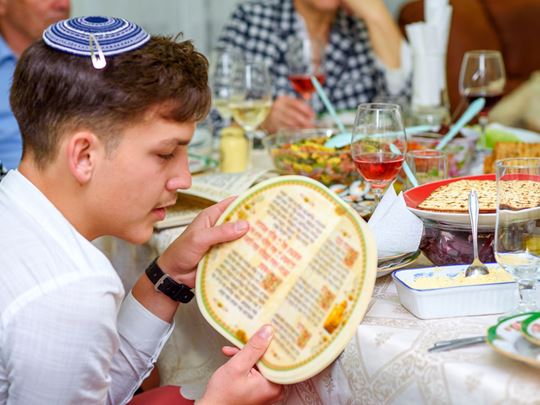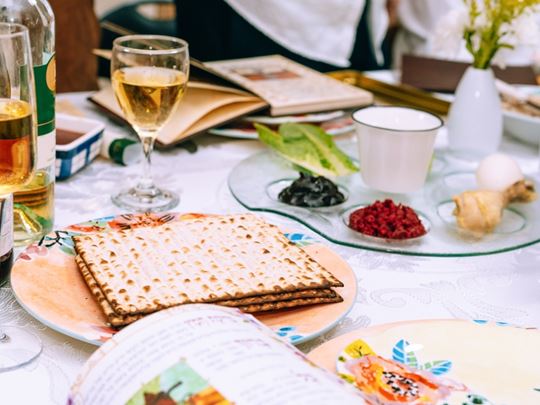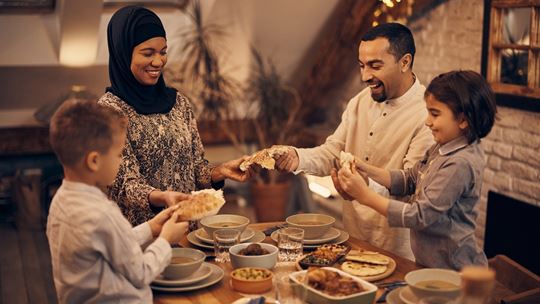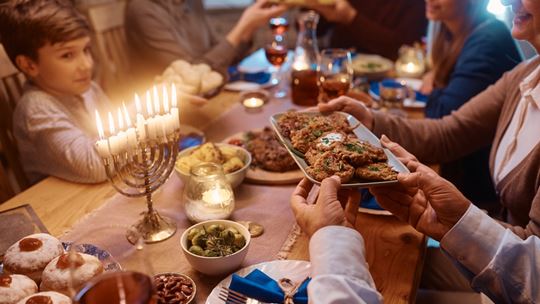How Cooking Brings Families Together During Passover
Discover the magic of Passover as it unites foster families in a joyous celebration. Explore how cooking traditional Passover meals fosters connection, bonding, and a sense of belonging. Join us in honouring traditions, creating cherished memories, and building strong family ties during this special time.

Sundown on Monday 22nd April 2024 marks the beginning of the festival of Passover. Passover is a time in which families come together to observe tradition, show gratitude and celebrate their faith.
This year as part of our celebration of this special time, we’ll explore some of the benefits of cooking with your foster children in preparation for Passover, and how you can teach your foster child about their religious and cultural heritage at this special time of year.
Strengthening family bonds
There is little else which brings families together quite like good food. Cooking together as a family can be challenging, rewarding and fun. A meal shared around the dining table helps families to feel more connected, and nowhere is this truer than while observing a special occasion such as Passover. Preparing Passover dishes together is an excellent opportunity to spend quality time together and create happy memories during this important occasion.
Helping children to better understand their faith
There’s no better way to learn than in a hands on fashion, and involving the whole family in the preparation of food for Passover provides the ideal teaching opportunity to educate young ones about the history, traditions and values of the Jewish community.
For example, while preparing the symbolic foods of the Seder plate, questions will naturally arise— why do we use unleavened bread, and why do we dip karpas into salty water? By encouraging your child to ask questions and by asking questions of your own, you can help them to understand the importance of commemorating the Exodus from Egypt and the freedom of Jewish people.

Teaching life skills
The skills your foster child learns by helping out in the family kitchen will stay with them for a lifetime. The rewarding experience of creating something and then getting to enjoy the fruits of their labour builds confidence and gives children a sense of accomplishment. Cooking together encourages creativity, teaches teamwork skills, and equips children with the skills they need to be able to take care of themselves when they reach adulthood. Even very young children can enjoy this highly sensory experience and can get involved with mixing, washing ingredients, and— best of all— taste testing!
Getting children involved
As the two ceremonial seder meals which take place on the first and second day of Passover consist of 15 steps, it can be a challenge to keep little ones engaged throughout. By involving children in the process of preparing food for Passover, such as by allowing them to choose which vegetables will be used as karpas or maror, you show them that their participation is an important part of the Passover preparations. Working as a family during the cooking process also encourages experimentation among picky eaters, who may be more inclined to try new dishes if they’ve had a hand in making them themselves.
Helping children to embrace their culinary heritage
Many traditional Jewish dishes make an appearance during the observance of Passover, and this makes the holiday the perfect time to teach your foster child about their culinary heritage. Some looked-after children may never have tried certain classic dishes, and teaching your foster child to prepare staples such as gefilte fish and kugel can be of great benefit to them. Teaching them how to prepare ceremonial dishes such as charoset will equip them with the skills to host their own seder in future. The recipes and traditions taught beneath your roof may one day be passed on to their own children.
Encouraging gratitude
At the core of Passover is a celebration of freedom and gratitude. By taking part in preparing the Passover meal, children may be better equipped to meditate on the true value of the symbolic foods eaten during seder. It is much easier to see the real value of a dish when we know first-hand how much time, care and effort went into preparing it, rather than when a meal is simply placed down in front of us. This personal connection to the food served during Passover can help children to truly appreciate the significance of this special meal and what a gift it is to be able to enjoy together.
There are many other ways to help your foster child to feel more involved during the preparation for Passover, such as by asking them to lay the table for sedar or help to prepare the home by removing chametz.
Here at ACS, we believe that it is vital that children in our care are able to celebrate their religious and cultural heritage. If there is space in your heart and in your home to welcome a foster child, you can learn more about fostering a Jewish child here.





